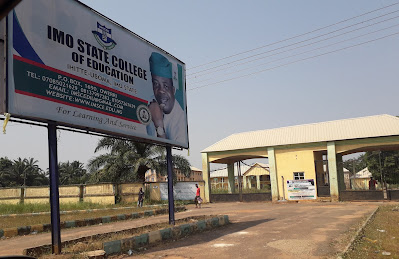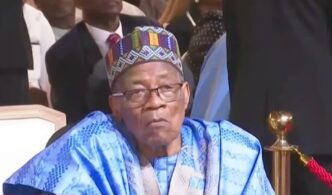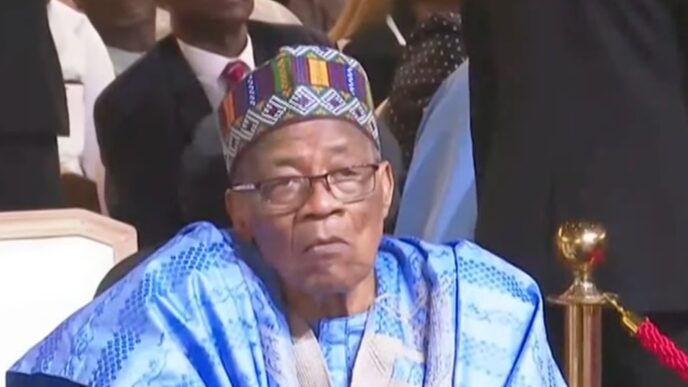BY OLATUNJI DARE
It was in 1985, during that period of high anxiety, when young men and women, a good many of them barely out of their teens, swarmed the campuses of universities and institutions of higher learning, parents and guardians in tow, to check on the status of their applications for admission, or to plead, petition or bid for a place they hope would transform their lives.
I was strolling from the Senate building of the University of Lagos, where I had just transacted some official business, to my office in the Department of Mass Communication. In the parking lot across from the University Bookstore, a woman accompanied by a stripling who, from all appearances was her son, accosted me. She was clutching a sheaf of documents.
Perhaps something in my gait suggested that I knew my way around the place, or that I was the approachable type. “Excuse me sir,” she said solicitously as I made to walk past her. “I need help.”
She had come from her home in Ajegunle, not for the first time, she said, as she held out the sheaf of documents toward me. The young man standing timidly and respectfully behind her. was her son. He had applied for admission to the mass communication programme. Admission would not only help fulfill his ambition, it would be the consummation of the family’s dreams and hopes.
Advertisement
She might have invoked the hard-scrabble Jungle City as their residential address to elicit special consideration foran applicant to an elite academic programme who was raised in a sprawling slum. In the end, it did not matter.
I took the papers, leafed through them briefly and handed them back to her.
“Your son is in, Madam,” I told her. “Don’t come here again.” And to the young man I said, “Congratulations. Go and prepare to join us soon. Good luck.”
Advertisement
Mother and son were ecstatic but restrained. Too many scammers around, preying on desperate parents and their wards. I gave them my card and asked them to let me know if they did not receive his letter of admission soon.
I had seen the applicant’s papers. He ranked in the top 5percent of the application pool and I was looking forward to having him in my introductory Writing class.
Meet Azubuike (Azu) Ishiekwene, the boy from Ajegunle who entered the highly competitive journalism programme at the University of Lagos with no influential patron but with a great deal of promise and enthusiasm 40 years ago.
From early encounters in the class, Azu struck me as a young man who was most likely to succeed. He was driven, committed, and enquiring. On assignments small and big, he strove to excel. You would hardly catch him making the same mistake or lapsing into the same solecism twice. He invested so much care into preparing his submissions that I remarked once that if every reporter were as meticulous as he was, copy editorswould go out of business.
Barely a year into the programme, he was self-assured enough to submit an opinion piece to the Editorial Page of The Guardian, then without question the nation’s most revered platform for debate and discussion on public affairs. To his delight, and to the cheers and envy of his contemporaries, it was accepted.
Advertisement
By the time he completed National Youth Service, he had built up an impressive portfolio of published newspaper and magazine articles. It was therefore with the highest confidence that I recommended him for appointment to Najeem Jimoh, the fastidious editor of the Punch, with a note scribbled on the back of my callcard.
Jimoh hired him on the spot.
Versatile in every genre of newswriting and reporting, Azu won the industry’s leading prizes for Informed Commentary year after year. His stature rose and rose inthe Punch establishment, where his zero tolerance for shoddy or perfunctory work won him plaudits from the Management but hardly endeared him to those who did not share his passion for excellence.
He was appointed Director of Publications and Editor-in-Chief of the Punch newspaper group, a career high for any person in the business.
That was the pinnacle of the first phase of Azu’s glittering career. It was also the point at which that career faltered. Azu was ousted, together with his deputy, following an investigation of the brickbats they traded over adherence to professional ethics. Both of them, the Punch establishment determined, stood compromised.
Advertisement
While the investigation lasted, I sent an email to Azu expressing concern. He wrote back explaining what was going on. Nothing in that reply suggested that he feared being found guilty of wrongdoing. But Punchnewspapers determined otherwise.
Months later, Azu announced that he was set to revive his award-winning syndicated column, which he had paused during the upheavals at the Punch. Not so soon, I counseled in an e-mail; allow time and the inexorable march of events to cleanse the air and re-establish you.
Advertisement
Azu replied firmly but ever so respectfully that he believed his voice mattered, and that was determined to continue using it.
In retrospect, he was right.
He ventured into magazine publishing. His offering, The Interview, was well-written and competently packaged. At the heart of every issue was an insightful interview with a major figure, conducted by Azu. But the journal did not catch on and went out of circulation after a year.
Advertisement
Azu went on to serve as a consultant for Sam Nda-Isaiah’s ailing Abuja-based newspaper Leadership. He gave the publication a new spark, an appeal and outlook. He raised the paper’s profile several notches when he became its editor-in-chief on Isaiah’s death. All the while, Azu’s syndicated, wide-ranging weekly column, with its trademark taut, unpretentious prose and illuminating insights, continued to run with no loss of vigour or engagement.
Lately, with the publication of How to Write for the Media and Monetize It, Azu has ventured into what I call mercantile journalism, for want of a better term. By all accounts, the book has been a commercial success. Such books, I humbly suggest, should be left to those who are more interested in commercial success than journalism, in helping shape the standards of sense and sensibility in society. The voice Azu said he was determined to use following a career setback is more suited to reporting, analyzing and clarifying public issues than selling newspaper articles.
Advertisement
Azu’s career is a study in dedication and perseverance. Based on his multifaceted media engagements, he will have to be accounted as one of the hardest-working and most versatile journalists in Nigeria, as well as one of the most engaging.
In commending him to Punch editor Najeem Jimoh for the job that opened the door to a career rich in achievement, one full of promise and possibility still, I did Azu no special favour. It was part of my duty as a teacher. But he has never missed any opportunity to remark my intervention, overflowing with gratitude at times, much to my embarrassment.
Gratitude is a hallmark of Azu’s personality. Across Nigerian cultures, that is a highly valued trait, a mark of good breeding. On the other hand is reviled, like a thief who breaks into your home and carts away your possessions. Such ill-bred individuals we shall always have among us. To all such, Azu stands out as a model and a rebuke.
Azu has, by dedication and sustained commitment to the art and craft of journalism, earned and re-earned the encomiums strewn across this volume, an eloquent testament to the high esteem in which he is held by his peers.
He fell, he picked himself up, and by great striving rose and rose to a position of acknowledged eminence in Nigerian journalism.
At 60, Azu has lived a life rich in purpose, achievement, and example. Nor is he done yet. I am delighted to enter a preface to this compilation of essays in honour of his 60th birthday.
Prof Dare writes from Caledonia, USA.
Views expressed by contributors are strictly personal and not of TheCable.










